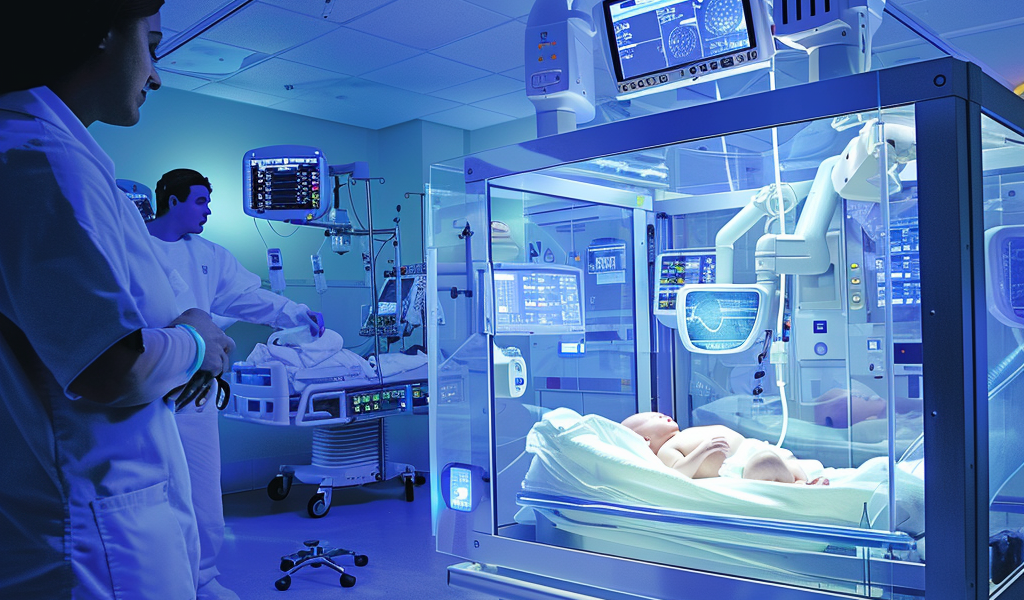In a groundbreaking study, researchers at Mount Sinai have successfully demonstrated the potential of artificial intelligence (AI) to detect significant neurologic changes in infants within the neonatal intensive care unit (NICU) using video data alone. This innovative approach could pave the way for improved neuro-monitoring techniques across intensive care units worldwide.
Published on November 11, 2024, in Lancet’s eClinicalMedicine, the study highlights the efforts of a multidisciplinary team composed of clinicians, scientists, and engineers who have trained a deep learning pose-recognition algorithm to monitor the movements of infants in the NICU. This AI-based tool aims to provide continuous, real-time insights into the neurologic health of newborns, a feat that has previously been challenging to achieve.
Annually, over 300,000 newborns are admitted to NICUs across the United States, where the assessment of infant alertness is crucial. This alertness serves as a vital indicator of the central nervous system’s integrity. Neurologic deterioration can occur suddenly in NICUs, leading to severe consequences for affected infants. While cardiorespiratory telemetry has been widely utilized to continuously monitor heart and lung functions, neurotelemetry has remained largely undeveloped in NICUs, despite significant advancements in electroencephalography (EEG) and the establishment of specialized neuro-NICUs.
Current evaluations of neurologic status in NICUs are often sporadic and rely on physical examinations that may overlook subtle changes. Recognizing this gap, the Mount Sinai team proposed that a computer vision method could effectively track infant movements and predict neurologic changes.
The study employed a machine learning technique known as Pose AI, which analyzes video data to track anatomical landmarks on infants. This technology has already made significant impacts in fields such as athletics and robotics. By harnessing this technology, the Mount Sinai researchers trained an AI algorithm on an extensive dataset comprising over 16,938,000 seconds of video footage from 115 diverse infants in the NICU, all of whom were undergoing continuous video EEG monitoring.
The results were promising, demonstrating that Pose AI could accurately track anatomical landmarks in infants based on video data. Leveraging this information, the researchers were able to predict two critical neurologic conditions—sedation and cerebral dysfunction—with remarkable accuracy.
“Although many neonatal intensive care units contain video cameras, to date they do not apply deep learning to monitor patients,” noted Dr. Felix Richter, MD, PhD, the senior author of the study and an Instructor of Newborn Medicine in the Department of Pediatrics at Mount Sinai. “Our study shows that applying an AI algorithm to cameras that continuously monitor infants in the NICU is an effective way to detect neurologic changes.”
This research not only showcases the potential of AI in enhancing infant care but also highlights the importance of continuous monitoring in improving health outcomes for vulnerable newborns. As the field of neonatal care continues to evolve, the integration of advanced technologies like Pose AI could revolutionize the way clinicians monitor and respond to neurologic conditions in real-time.
The implications of this study extend beyond the immediate benefits for NICU patients. By establishing a scalable and minimally invasive method for continuous neurologic monitoring, there is potential for broader applications in various intensive care settings globally. This could lead to more effective interventions and improved survival rates for infants experiencing neurologic complications.
As the medical community continues to explore the intersection of technology and healthcare, the findings from Mount Sinai offer a promising glimpse into the future of neonatal care. With further research and development, AI-driven monitoring systems could become standard practice in NICUs, ensuring that the most vulnerable patients receive the timely and precise care they need.





